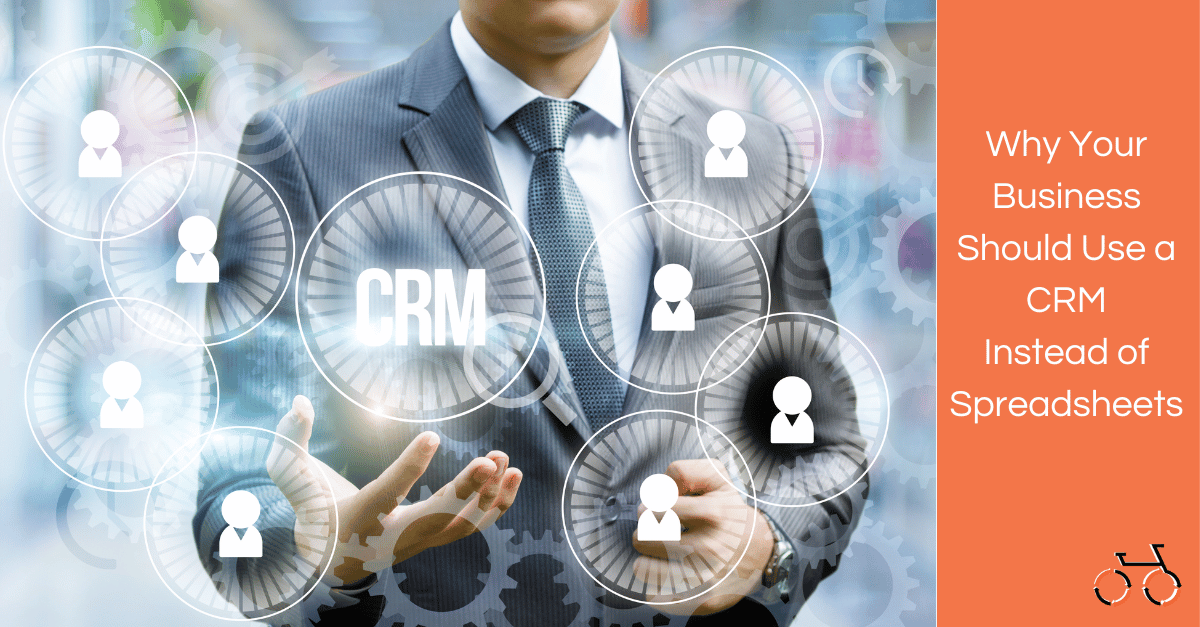A Year of Growth and Gratitude: CycleWerx Marketing’s 2024 Highlights
As 2024 comes to a close, we can’t help but reflect on what an incredible year it has been for CycleWerx Marketing. This year has been filled with...
4 min read
 Scotty Smith
:
Jul 28, 2024 3:12:33 PM
Scotty Smith
:
Jul 28, 2024 3:12:33 PM

Managing customer relationships is crucial for the success of any business, especially for solo entrepreneurs, freelancers, startups, and small businesses. Traditionally, many small business owners have relied on spreadsheets to manage their customer data. However, as businesses grow and customer interactions become more complex, spreadsheets quickly become insufficient. This is where a Customer Relationship Management (CRM) system comes in. Let’s explore why your business should consider using a CRM instead of spreadsheets.
While spreadsheets are simple and accessible tools, they come with significant limitations when it comes to managing customer relationships. Spreadsheets offer limited capabilities for centralizing data, making it challenging to manage growing volumes of customer information effectively. They lack automation, meaning repetitive tasks like data entry, follow-up reminders, and customer segmentation have to be done manually, which is time-consuming and prone to errors.
As your business scales, the complexity of managing customer interactions in spreadsheets becomes overwhelming, leading to disorganization and potential loss of valuable information.
Spreadsheets also fall short in providing robust task management and contact management features. Keeping track of tasks, deadlines, and follow-ups in a spreadsheet is cumbersome and can lead to missed opportunities. Additionally, spreadsheets do not offer visual sales pipeline tracking or advanced reporting and analytics capabilities, which are essential for gaining insights and making data-driven decisions.
A CRM system addresses the limitations of spreadsheets by offering a centralized, automated, and scalable solution for managing customer relationships. Here are some key benefits of using a CRM:
Choosing the right CRM can be a game-changer for your business. Here are our top 4 recommendations for powerful entry level CRMs:
When choosing a CRM, consider the following features that are particularly beneficial for solo entrepreneurs, freelancers, and small businesses:
Switching from spreadsheets to a CRM can significantly enhance your business operations, especially in managing customer relationships and driving sales. At CycleWerx Marketing, we’ve seen firsthand how HubSpot CRM transforms businesses with its ease of use and powerful features.
By choosing the right CRM, you can streamline your processes, improve customer satisfaction, and ultimately grow your business. As HubSpot Certified Solution Partners, we can also provide your onboarding and training to ensure your success and that you are getting the most out of your CRM from Day 1.
When you're ready to choose the right CRM, reach out to CycleWerx. We can help you choose the best platform configuration to meet your business needs and budget.
Embrace the power of a CRM today and see the difference it can make in your business networking and overall success!

As 2024 comes to a close, we can’t help but reflect on what an incredible year it has been for CycleWerx Marketing. This year has been filled with...

In the world of B2B marketing, it’s easy to get caught up in the excitement of your latest company achievement, a new product launch, or the fact...

Managing customer relationships is crucial for the success of any business, especially for solo entrepreneurs, freelancers, startups, and small...